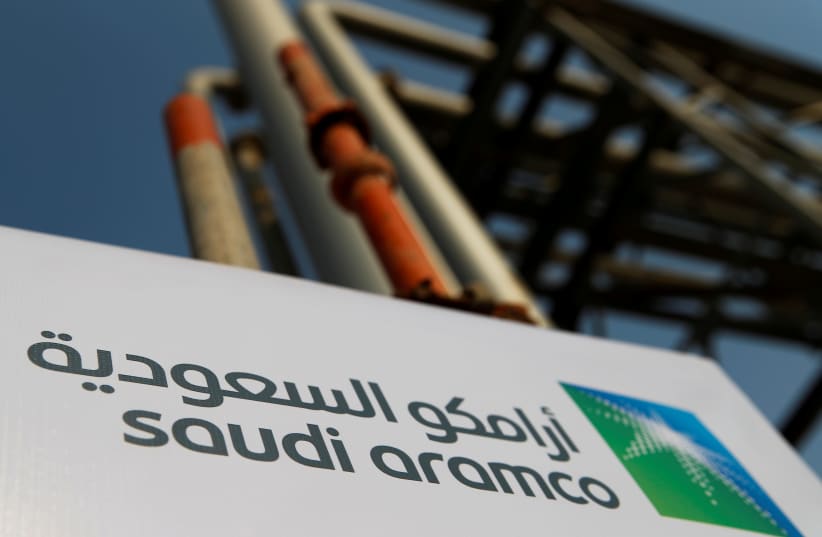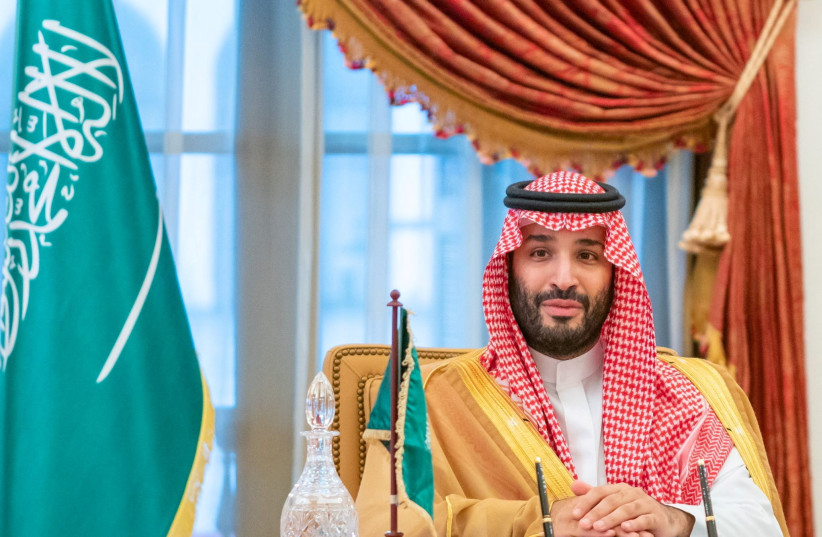A major attack by the Iranian-backed Houthis on a Saudi Aramco facility in Jeddah illustrates Iran’s growing threat to the region.
It comes after Iran also used ballistic missiles to attack Erbil in Iraq recently. Tehran is still seeking a new nuclear deal in Europe and hopes the US will cave into its demands. Meanwhile, it is attacking Saudi Arabia using proxies.
In addition, the Palestinian Islamic Jihad group recently gave an interview to Fars News bragging about Iranian support. News that Iran has used drones flown from Iran over Iraq to strike at Israel over the last year, illustrates how Iran’s growing threat is taking place on multiple fronts.
According to Al-Arabiya media in Saudi Arabia, “per the latest update, Arab Coalition spokesperson Turki al-Malki said the fire that damaged two tanks had been brought under control and caused no injuries.” Malki said “this hostile escalation targets oil facilities and aims to undermine energy security and the backbone of global economy,” according to the official Saudi Press Agency (SPA). The UK and US condemned the attack.
“We will continue to work with our Saudi partners to strengthen their defenses while also seeking to advance a durable end to the conflict, improve lives, and create the space for Yemenis to determine their own future collectively,” said a statement from the US Department of State, shared with the media.
According to the reports, Jake Sullivan, White House National Security Advisor, condemned the attacks and called them “clearly enabled by Iran.”
Saudi Arabia wants to see more support from the international community against the Houthis.
Saudi Arabia’s ambassador to the US, Princess Reema bint Bandar al-Saud, called on the international community to take a tougher position. “The Iran-backed terrorist Houthis continue to attack our civilians, infrastructure and energy facilities with Iranian made missiles and UAV’s, with impunity. The international community must act against this aggression that targets innocent civilians and global energy supplies.”
Iranian-backed Houthis have targeted Aramco before and reports said they also targeted other facilities the same day as the attack on Jeddah.
The reports mentioned that there were attacks in Samtah and that nine drones were launched to target other places. Saudi Arabian media said that “the Arab Coalition announced the start of airstrikes in Yemen on Friday in retaliation for attacks on oil facilities in Saudi Arabia,” according to Al Arabiya.
Tasnim media in Iran bragged about the attack. It called it part of a major operation inside Saudi Arabia.
Tasnim News in Iraq said that the Houthi “armed forces last night, on the anniversary of the invasion of Yemen by the Saudi-American coalition, carried out a large-scale operation deep in the territory of Saudi Arabia, targeting several important centers in the country, including Aramco facilities.”
According to the Iranian accounts and pro-Iran Al-Mayadin, this attack was “one of the most extensive operations by the Yemeni armed forces against Saudi positions inside the country.” The reports say that the Houthis will continue to strike at Saudi Arabia.
“Sources told Al-Mayadin that in the coming days, the Yemeni armed forces will continue their attacks on vital Saudi locations if the siege against Yemen continues, and are determined to close Aramco’s vital facilities in Ras Tanura, Rabigh and Jeddah.”
This appears to lift the veil on a larger Iranian plan to strike at and pressure Riyadh. This comes as Iran is also trying to get a new nuclear deal. It shows how an empowered Iran could increase its attacks across the region.
Iran could use any money it gets from the Iran deal to expand its attacks. This means Iran feels it can exploit the use of missiles fired from Yemen, Iraq, Syria and Lebanon with total impunity.
Iran has also encouraged the Houthis to target the UAE. Iran has used drones to try to attack Israel, and recent reports said two drones were downed by the US-led Coalition. Drones were also interdicted last year.
The Houthis have called the latest attacks “Operation Breaking the Siege.” Iran says it targeted the Aramco facility with nine drones. A Houthi spokesman, Brigadier General Yahya Sari, “announced last Sunday that a number of vital Saudi Aramco facilities in Riyadh, Yanbu and other parts of the country have been targeted with several ballistic missiles, cruise missiles and UAVs.
Also, as soon as the first phase of the operation was successful, the Yemeni forces attacked a number of vital and important targets in Abha, Khamis Mushait, Jizan, Samta, South Dhahran with missiles and UAVs,” the Tasnim report says.
“The important point is that this operation is not short-term and cross-sectional, but the Yemeni army’s intelligence and reconnaissance circle will identify the sensitive and strategic areas of Saudi Arabia, and the next rounds of the operation will be carried out,” Tasnim says.
Clearly, this is just the beginning and Saudi Arabia is right to call on the international community to help more. Iran may be launching a new wave of attacks this spring designed to destabilize the Gulf.
This comes as delegations from the UAE, Bahrain, Morocco and Egypt will gather with the US in Israel this week for an unprecedented summit.
The Foreign Ministry has called this the “Negev Summit” which will take place from March 27-28. Foreign Minister Yair Lapid will host the summit at Sde Boker, the Ministry said. “Six foreign ministers will participate in this historic meeting: Lapid, US Secretary of State Antony Blinken, UAE's foreign minister Sheikh Abdullah bin Zayed, and ministers from Bahrain, Morocco and Egypt,” Israel says.
Considering the growing threat by Iran to Saudi Arabia and the Gulf this summit has important ramifications.
The Saudi-backed coalition will now carry out increasing strikes on the Houthis. These will target Hodeidah, Sanaa and other locations, reports say. Al-Arabiya said the coalition stopped explosive-laden boats in Hodeidah over the weekend.
Iran is showing total support for the Houthis in this battle with Riyadh. It has projected the faces of Houthi leaders on the Azadi monument in Tehran, according to photos seen online.

